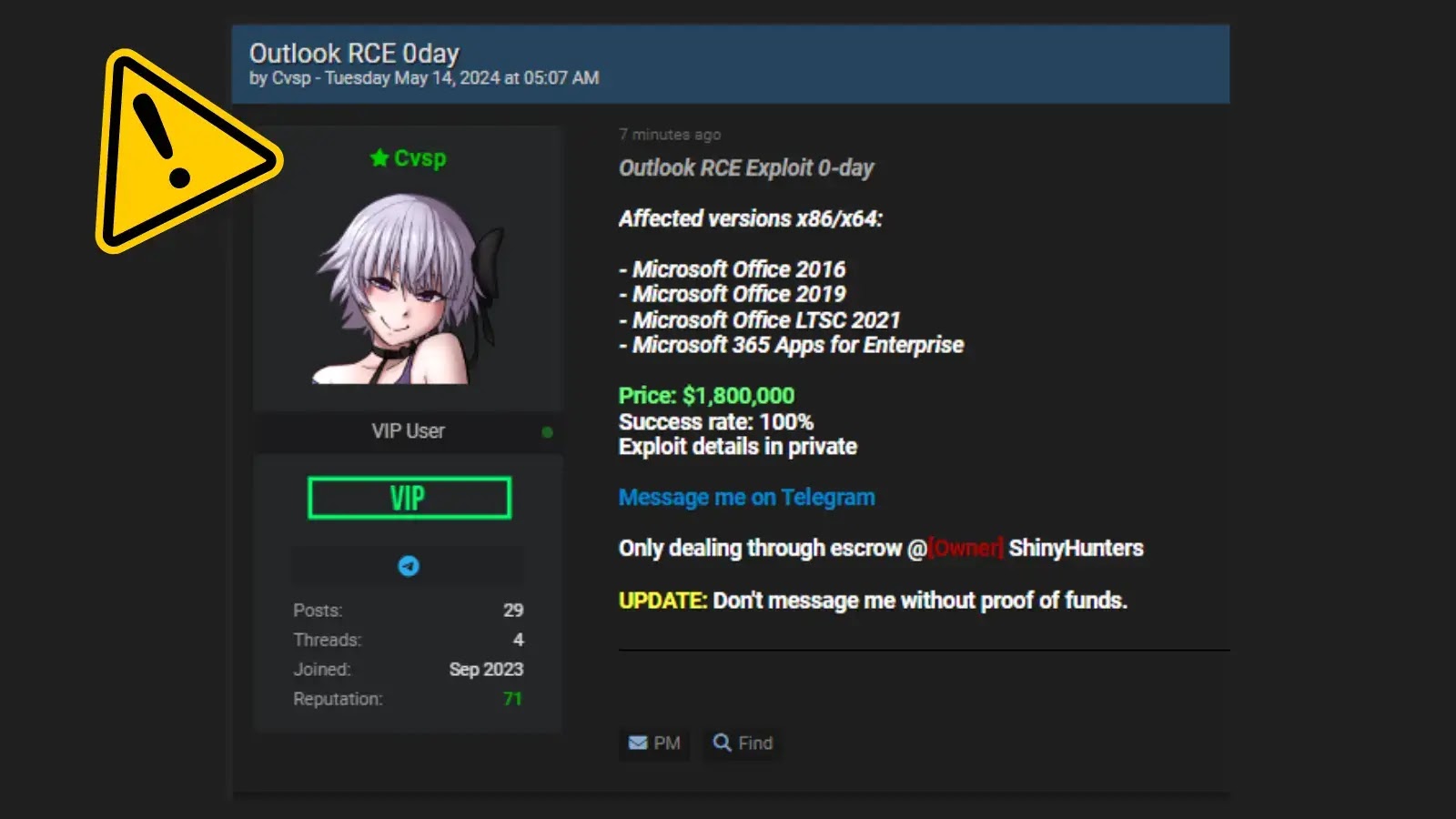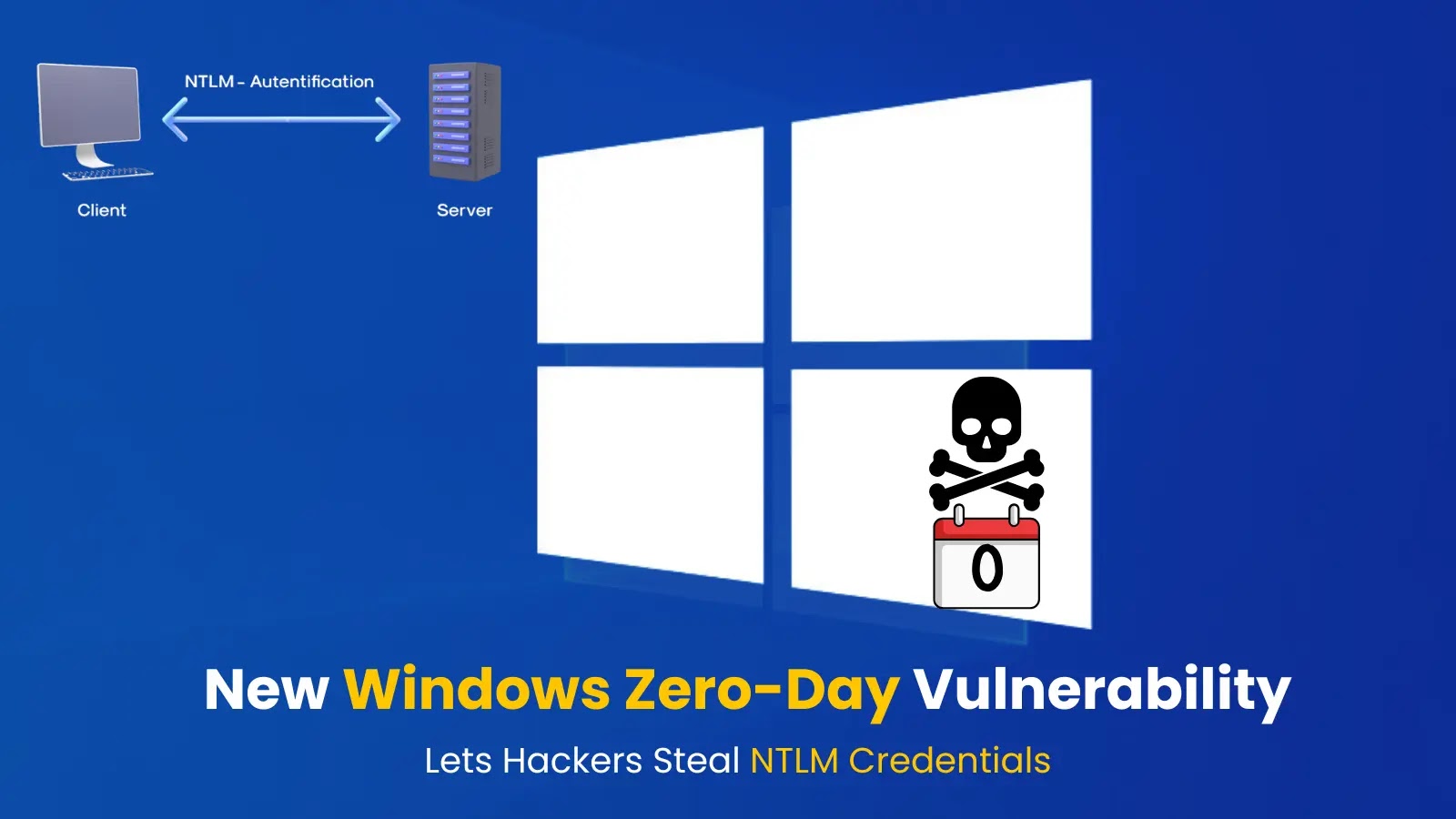A new threat has emerged on the darker corners of the internet.
A threat actor has reportedly put up for sale a Remote Code Execution (RCE) 0-day exploit targeting various versions of Microsoft Outlook, with a staggering asking price of $1.8 million.
If this exploit is as potent as claimed, it could pose a significant risk to millions of users globally, potentially allowing unauthorized access to sensitive information.
A recent tweet from HackManac shared that the threat actor is selling Outlook RCE 0-Day on Hacking Forums.
⚠️ #ZeroDay Alert🚨 Outlook RCE 0-Day Exploit on Sale for $1.8M 🚨According to the post, a threat actor is selling an Outlook RCE exploit 0-day, targeting x86/x64 versions of Microsoft Office 2016, 2019, LTSC 2021, and Microsoft 365 Apps for Enterprise. The asking price is… pic.twitter.com/pWrEr5WNr2— HackManac (@H4ckManac) May 14, 2024
The Exploit in Detail
The exploit in question targets x86/x64 versions of Microsoft Office 2016, 2019, LTSC 2021, and Microsoft 365 Apps for Enterprise.
The seller boasts a 100% success rate for the exploit, which, if true, underscores a severe vulnerability in widely used email and office suite applications.
The high asking price of $1.8 million reflects the potential impact of the exploit and the sophistication and rarity of such a vulnerability.
Free Webinar on Live API Attack Simulation: Book Your Seat | Start protecting your APIs from hackers
Remote Code Execution (RCE) vulnerabilities are particularly alarming because they allow attackers to execute arbitrary code remotely on a victim’s system.
This could enable various malicious activities, from stealing sensitive data to deploying ransomware.
An RCE 0-day exploit, which exploits a vulnerability not yet known to the software developer or the public, is especially dangerous because there is no existing patch to fix the vulnerability, leaving users defenseless against attacks.
Verification and Response
As of now, the claims made by the seller regarding the exploit’s effectiveness and the asking price have not been independently verified.
The lack of detailed information or proof of concept provided in the sale post adds an element of uncertainty to the situation. However, the mere possibility of such an exploit has already raised alarms within cybersecurity circles.
Microsoft, the developer of Outlook and the targeted software, has yet to respond to these claims.
The cybersecurity community is eagerly awaiting any confirmation or denial from the tech giant and any potential advisories or patches that may be released in response to this threat.
The sale of this exploit highlights the ongoing challenges in cybersecurity, particularly the threats posed by 0-day exploits.
Users and enterprises are advised to stay vigilant, keep their software updated, and follow best practices for cybersecurity.
This includes using complex passwords, enabling multi-factor authentication, and being cautious of suspicious emails and links.
The situation also underscores the importance of proactive cybersecurity measures, such as regular security audits and advanced threat detection and response systems.
As the landscape of cyber threats continues to evolve, it is more crucial than ever to stay one step ahead of potential attackers.
On-Demand Webinar to Secure the Top 3 SME Attack Vectors: Watch for Free



